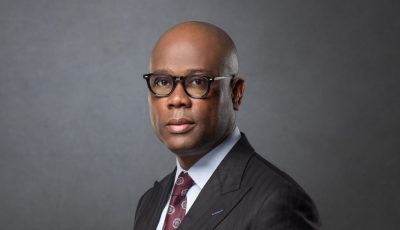Warning: Undefined array key "dirname" in /home/anapuafm/public_html/wp-content/themes/anapuafm/include/plugin/filosofo-image/filosofo-custom-image-sizes.php on line 133
Warning: Undefined array key "extension" in /home/anapuafm/public_html/wp-content/themes/anapuafm/include/plugin/filosofo-image/filosofo-custom-image-sizes.php on line 134
Access Bank ‘W’ initiative trains women entrepreneurs
GNA – As part of the value proposition of the Access Bank ‘W’ Initiative to offer financial literacy workshops, over 50 women entrepreneurs in Accra have received training in enhancing their business performance to enable them stay competitive.
The workshop dubbed, “The ‘W’ Knowledge Hub” was the maiden edition of the capacity building series which is expected to take place during each quarter of the year.
Some key topics discussed during the workshop included: Preparing a Business Profile, attracting investment for your business, creating your personal and business brand and Effective time management.
Engaging participants at the workshop, Mr. Dolapo Ogundimu, the Managing Director of Access Bank Ghana, said capacity building workshops, designed to focus on women businesses, is the Bank’s response to addressing some pertinent issues affecting women owned SMEs.
He said “to achieve the change and economic transformation we all so desire for this country and on the continent, it behoves on us to pay a lot more attention to the needs and challenges facing this segment of the market, and more especially women since they constitute the majority”.
Taking the participants through personal and business branding, Ms Ruka Sanusi, CEO of Alldens Lane (a business coaching firm) and a ‘W’ Ambassador, said there is the need for every entrepreneur to have a vision of what their personal and business brand should embody right from its early stage.
She said this is useful in serving as a guide for business growth and maintaining discipline to achieve set objectives.
The “W Knowledge Hub” will complement already existing capacity building programmes such as the “Power Breakfast series” and others that equip entrepreneurs and small business owners.
Last year, the “Power Breakfast series” was used to also cover key financial topics such as Bookkeeping and Cash flow management.
The ‘W’ Initiative seeks to inspire, connect and empower women across the country by offering a bundle of tailor made products, services and opportunities to women, ranging from young professionals, women with family and women in business.
The Bank continues to commit resources to improve the wellbeing of key areas such as education, health and social improvement across several communities in Ghana.
It is also committed to sustainable business practices that drives profitable, sustainable growth and is also environmentally responsible and socially relevant.
GNA



